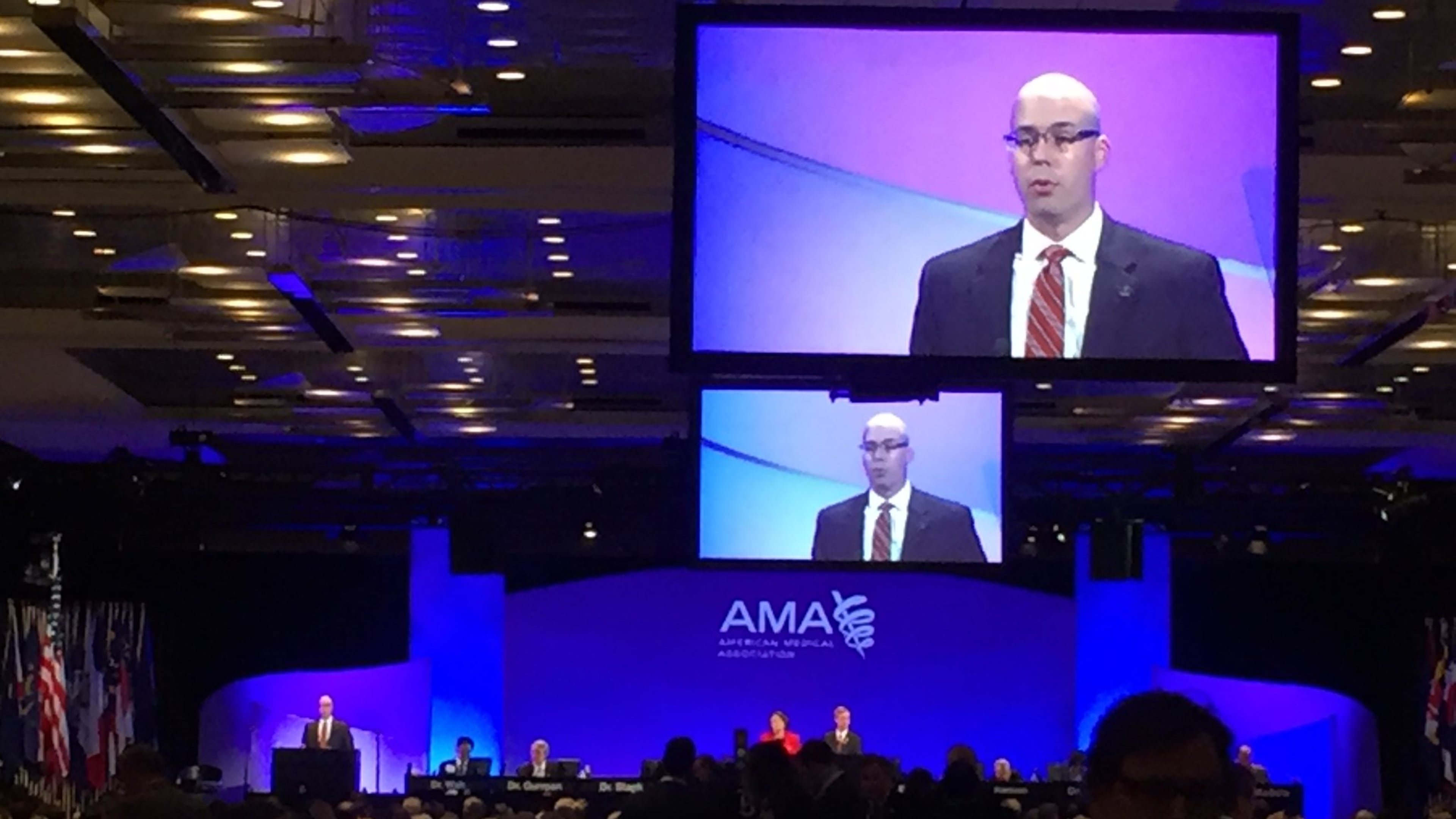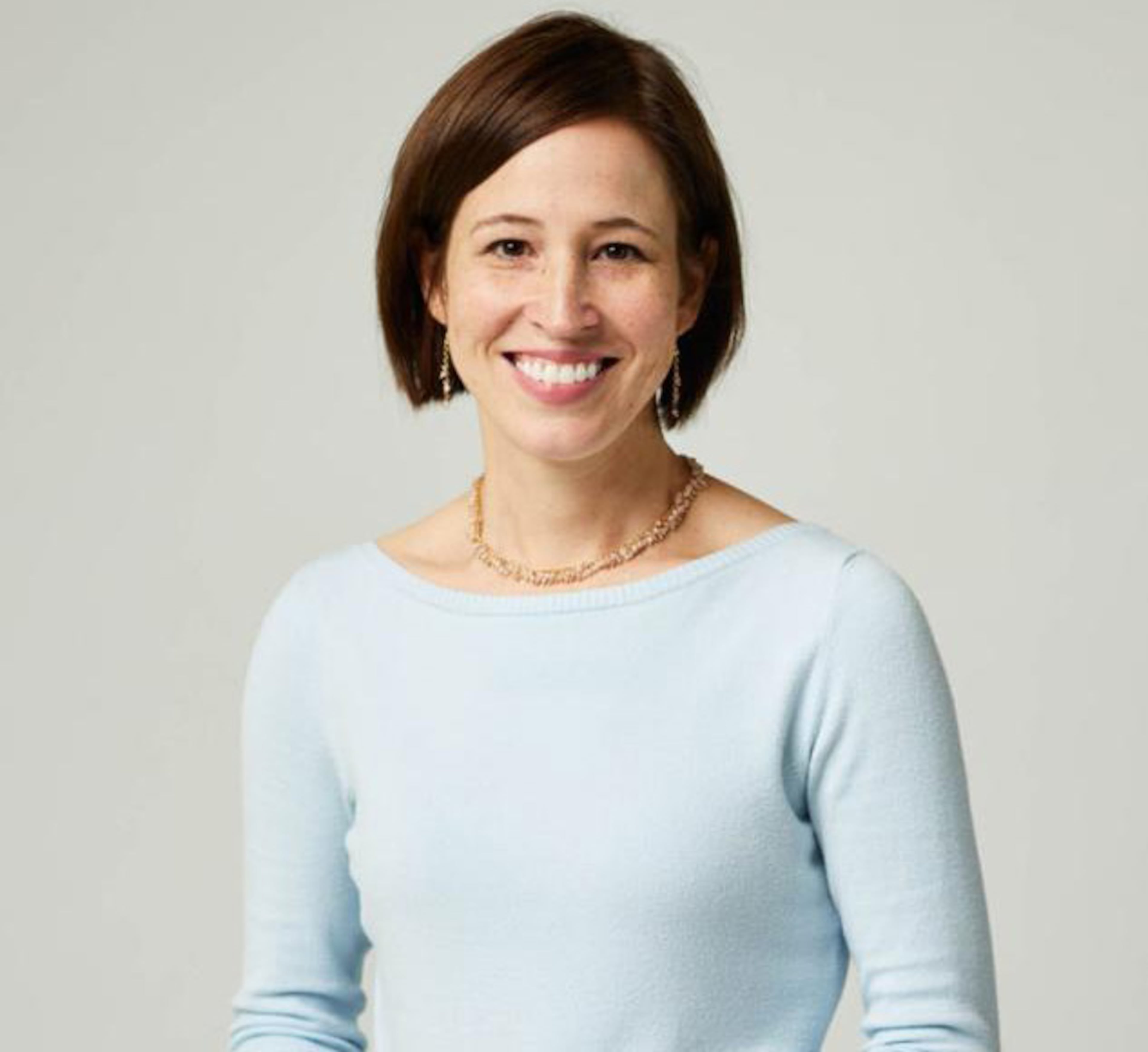In #MeToo era, AMA asked to confront doctors’ sexual misconduct

Nobody was more surprised than Dr. Meg Edison when another physician in her office was accused of sexual misconduct with a patient.
That doctor, Dwayne Cook, was married, the father of seven children. He led weekly Bible studies. He drank neither coffee nor wine and couldn’t recognize the smell of burning marijuana. He seemed, Edison said, “as pure as the wind-driven snow.”
But in January 2017, a 22-year-old patient with autism accused Cook of taking advantage of him sexually. Michigan’s medical board handed Cook, 49, a quick punishment: a six-month suspension of his medical license.
“And that,” Edison said, “was it.”
At first, Edison was upset by the relatively light penalty, then by the medical board's failure to refer Cook's case to the police. Now, she has turned her outrage into a call for action by an organization that has long avoided talking about physicians' sexual misdeeds: the American Medical Association.
Edison and other Michigan doctors are seeking the AMA’s support for new rules forcing regulators to notify law enforcement when doctors commit sex offenses against patients. The AMA’s governing body will consider their proposed resolution this weekend in Chicago.
It's a surprisingly radical idea. Just 11 states require such notifications. The other 39, along with the District of Columbia, only mandate the reporting of crimes against children. Georgia is among the states that allow medical boards to treat doctors' sex offenses as regulatory transgressions rather than criminal acts.
If the proposal advances, it would be the first time since 1989 that the organization has formally addressed sexual misconduct involving doctors and their patients. The 1989 policy says sexual misconduct – specifically, “sexual or romantic interactions” with patients – constitutes a breach of medical ethics. But the policy does not address, or even acknowledge, predatory or abusive sexual acts.
The AMA, like most of the medical establishment, has been slow to acknowledge widespread sexual improprieties by physicians, as documented by The Atlanta Journal-Constitution in its 2016 series "Doctors & Sex Abuse." But the case of Dr. Larry Nasser, who pleaded guilty to molesting members of the U.S. Olympics gymnastics team, and the broader #MeToo movement have made the issue all but unavoidable.
To patient advocates, Edison’s proposal represents progress – incremental, but progress nevertheless.
"It's a good step," said Lisa McGiffert of Austin, Texas, an organizer of the Patient Safety Action Network, a national advocacy group. "It's one of those, 'Oh, my goodness, this isn't already done?' steps. Most people would be shocked that that's not already done."
An AMA spokesman, Robert Mills, said commenting on the proposal — one of more than 700 on the agenda — would be "premature."
“No report or resolution can be represented as AMA policy until approved by a vote of the House of Delegates,” Mills said in an email. “It will be delegates who decide the status of current AMA policy.”

Edison is an unlikely change agent for the AMA. She is a pediatrician from a suburb of Grand Rapids and, as a woman, is in a distinct minority both in her profession and among AMA members. Twice at previous annual meetings, she drafted amendments to AMA policies, only to see them die in what she called the “black holes” of the organization’s bureaucracy. The AMA, she said in an interview, prefers not to confront uncomfortable issues in a public manner.
But, she said, “Part of professionalism and self-regulation is trying to stop this and not being afraid to report these things to the police.”
Her proposed resolution says not reporting sexual misconduct to police “has allowed health care providers across the country to commit sex crimes against patients with only medical sanctions, revocation of their licenses, or ‘quiet retirement’” as consequences. The resolution calls for the AMA to work on new model regulations with the Federation of State Medical Boards, which represents medical regulators from every state.
The federation recently formed a “working group” to review its sexual misconduct policy, adopted in 2006, a spokesman, Joe Knickrehm, said this week. The group will recommend best practices for medical boards reporting misconduct to police and cooperating with prosecutors, he said.
When Michigan regulators received a report of misconduct by Cook, they filed an administrative complaint outlining the accusations:
The victim, identified by the initials A.V., had been Cook’s patient for three years, and they had had multiple conversations about the man’s sexual history and drinking. A.V. began attending weekly meetings of Cook’s Bible study group, and the two exchanged frequent texts.
Twice, the complaint says, Cook invited A.V. to his home, where he kissed and touched the man through his clothes in “a sexual manner.”
Unwanted touching of private areas can be considered sexual battery. In Georgia and many other states, sexual battery is a misdemeanor for the first offense. But additional violations can be prosecuted as felonies.
Cook consented to his suspension without admitting guilt. Efforts to reach him were unsuccessful, and his lawyer did not respond to a request for comment.
Edison said a member of the Michigan medical board told her it does not file police reports about doctors. But Pardeep Toor, a spokesman for the agency that coordinates the board’s activities, said officials work “closely with local law enforcement partners … depending on the nature of the complaint that is received.”
In Cook’s case, the board’s action was the final word. But Edison thinks he deserved more than an administrative penalty — to discourage repeat offenses and to alert people in the community.
"He should be on the sex offender registry," she said. Otherwise, "you would never know."

» Read the AJC's award-winning investigation, Doctors & Sex Abuse: A 50-state investigation


